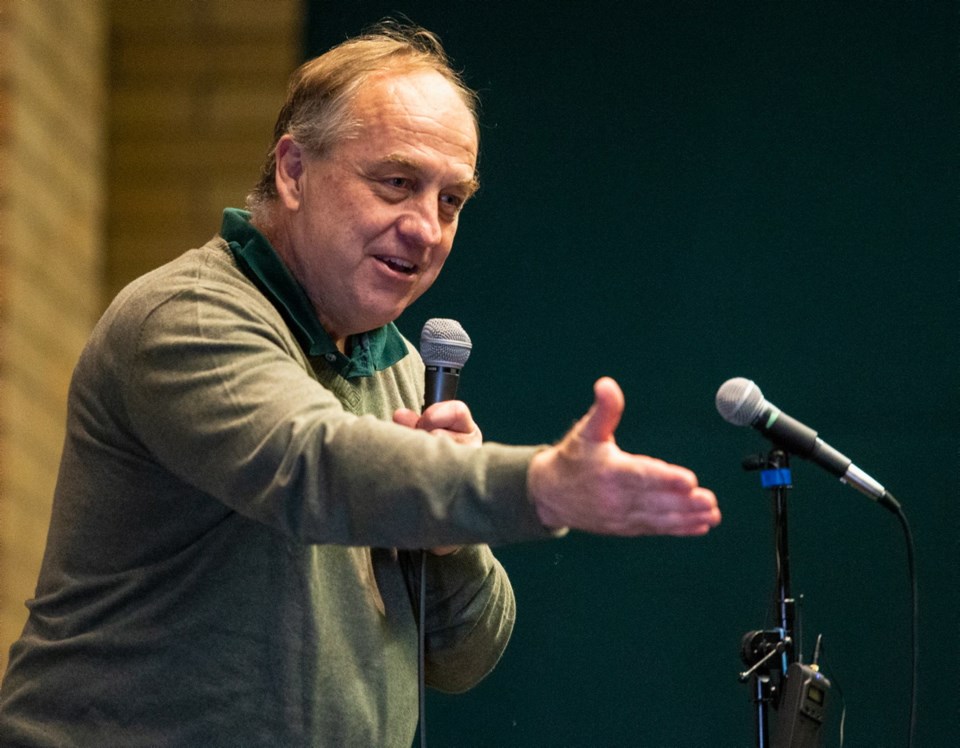The year just ended saw three political leaders bring their careers to a close. Andrew Weaver, leader of the provincial Green Party, announced he was stepping down and will not run for re-election in his Oak-Bay-Gordon Head riding.
Elizabeth May, head of the federal Green Party, likewise announced that her time as leader is finished, though she intends to contest her Saanich-Gulf Islands seat in the next election.
And Andrew Scheer, head of the federal Conservatives for just two years, threw in the towel after a disappointing campaign. Many felt his social conservatism, along with an uninspiring personality, cost his party a winnable election. He intends to stay on as a backbench MP “for the near future.”
After increasing his party’s seat tally from one to three, Weaver could certainly have remained had he wished. His standing as a respected professor at the University of Victoria brought credibility to the party.
But when the referendum on electoral reform went down to defeat, the Greens lost their best chance of gaining a real foothold in the legislature. That might have played a part in Weaver’s decision to call it a day.
How he is to be replaced is the question.
Either of the two remaining MLAs, Adam Olsen in Saanich North and the Islands, or Sonia Furstenau in Cowichan Valley, would make a safe choice. Both won their ridings comfortably.
However, it’s hard to see how the party expands its reach by going in-house. The best option might be to choose a leader with no seat in the legislature, but with a reasonable chance of gaining one.
Yet a look at the vote tallies in the last election shows how difficult this will be. Leaving aside Weaver and his two colleagues, only three Green candidates province-wide came within 20 percentage points of winning a seat, and then just barely.
The question then is, do you play it safe and try to hold what you have or do you gamble on broadening your caucus?
The federal Greens face a different dilemma. Of their three seats in the House of Commons, two are in sa���ʴ�ý, and one in New Brunswick. The party has no presence in Ontario or Quebec, where most of the votes are, and none on the Prairies.
Ideally, the new leader should represent one of these regions, but here again, the risk lies in nominating someone who might fail to get elected. That would only reinforce the appearance that the party has no national appeal.
How Scheer is replaced will have broader ramifications, perhaps determining the outcome of the next federal election.
There is no shortage of credible candidates to replace him. Alberta’s Rona Ambrose, a senior minister under Stephen Harper, and later interim leader of the Conservative Party and leader of the Opposition, has all the right optics, bar one.
She has worked with women’s groups countrywide. She emerged unscathed from the eventual collapse of Harper’s government, and is well regarded across party lines.
Her one deficit is that she would be the third Conservative leader in a row from Western sa���ʴ�ý, not a strong talking point in the centre of the country.
Peter MacKay was also a senior minister in Harper’s government, holding the Foreign Affairs portfolio, among others. He too suffered no ill effects from his time in office, and importantly, hails from Nova Scotia, once a Conservative stronghold.
Then there is Jean Charest, the former Liberal premier of Quebec and before that leader of the Conservative party from 1993 to 1998. He is fully bilingual in French and English.
He has, however, two burdens to bear. By crossing the floor to join the Quebec Liberal party, he earned the undying enmity of many Conservatives. And his judgment in office was not always sound. He gained something of a reputation for shooting from the hip.
None of these potential candidates has said they will run, though each is making exploratory moves. And other, less well-known, aspirants will no doubt throw their hats in the ring.
At its most basic, however, the decision facing the Conservatives comes down to this: A new leader must be found who can put a more sympathetic face on the party, who is socially liberal, bilingual, and ideally represents one of the vote-rich regions.
Andrew Scheer was none of these things. Has this lesson been learned?



